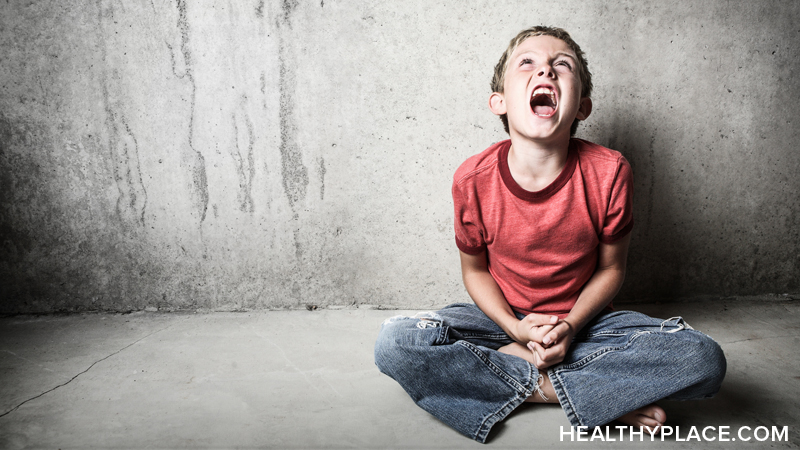Schizophrenia and Parenting: How to Handle Psychotic Events

The combination of schizophrenia and parenting can be a difficult one that requires patience, understanding, and compassion. Schizophrenia is a serious mental illness that is often scary and confusing for the children and teenagers who live with it. The illness can be all-consuming so that it seems that mothers and fathers are parenting schizophrenia rather than parenting their children. Schizophrenia and parenting means that the more you understand about schizophrenia, the more your parenting will be about your child rather than their illness. You’ll even be more equipped to handle psychotic events.
Schizophrenia is rare in children younger than 12, although sometimes early signs of schizophrenia appear before the age of 12. The onset of psychotic symptoms usually occurs in middle- to late adolescence.
An outstanding feature of schizophrenia is psychosis. This refers to experiences like hallucinations (sensing things that aren’t there) and delusions (believing that the hallucinations or general thoughts are real). In adolescents, hallucinations are more common than delusions; therefore, when your teen experiences a psychotic event, you’ll likely be helping them through hallucinations that will most likely be predominantly auditory.
Schizophrenia and Parenting Means Helping Your Child with Psychotic Events
Watching your teen have a psychotic break—a full or partial separation from reality that involves seeing, hearing, smelling, feeling, or tasting things that don’t exist at that moment—can be heartbreaking and frightening.
It can be just as heartbreaking and frightening for your child. Imagine being an adolescent dealing with the confusions, stress, school pressures, and a host of social and friendship issues and simultaneously having a psychotic disorder. Parenting a child with schizophrenia is a wild ride, and you are the ride operator. As such, you pay attention to them, keep them safe, and go along on the ride.
One of the intimidating things about schizophrenia and parenting is that most parents have no training before being thrust into the role of ride operator. As part of the process, educate yourself. The more you know about schizophrenia in youth, the better able you’ll be to help your teen through psychotic events. These lists of do’s and don’ts will help you best help your child during their hallucinations.
Do these things to help your teen:
- Stay with them
- Connect with them
- Be calm (deep breathing and mindfulness can center you)
- Listen fully and attentively to what they’re saying
- See the episode from their point of view to further empathize with them
- Focus not on the hallucination but on the emotions involved and the words they say
- Ask them if and how you can help them
- Empathize, saying things like, “You can hear voices telling you how terrible you are. That must be scary and upsetting.”
- Talk to them about the strengths and positive things about them.
- Prompt them to talk out loud, saying positive statements you’ve prepared with them ahead of time. You can have them read aloud or even sing—anything to vocalize and pull away from the hallucination.
- Softly guide them back to reality by asking them to focus on you, meaningful objects in the room, etc. Tell them in a non-threatening way what is real and what is a hallucination.
- Simply express understanding.
To help your teen, don’t do these things:
- Argue with them about the hallucinations
- Criticize
- Deny their experiences
- Tell them that what they’re saying makes no sense
- Directly confront or challenge them
- Get angry and act or speak in anger
- Use labels like “psychotic,” “crazy,” or other derogatory terms to describe your child
- Laugh at the content of their hallucinations
- Tell them to stop making things up
- Play along with the hallucinations as if you think they’re real, too
- Talk to them in a condescending or placating way
Minimizing Psychotic Episodes
While psychosis is a primary feature of schizophrenia and can’t be eliminated, as parents you can help your teen learn to minimize them. Teach and adopt healthy lifestyle habits. Getting proper nutrition, avoiding lots of processed and junk foods, and exercising regularly are important for proper brain and body functioning. Sleep is vital, too. Reducing both stress and boredom help a great deal in minimizing psychotic events. Keep your teen’s environment calm and equipped with things that interest them.
It’s important that you help them stay away from drugs and alcohol. Approach the issue positively and with support; rather than become angry and accusatory, emphasize that you want to help keep their hallucinations away as much as possible.
Parenting and schizophrenia are about love, connection, patience, and your relationship. It isn’t easy to handle psychotic events. Use the lists of do’s and don’ts to help you be fully present with your teen when they’re experiencing psychosis as well as know the right words and actions that will help bring them back to reality in a supportive way.
APA Reference
Peterson, T.
(2019, July 19). Schizophrenia and Parenting: How to Handle Psychotic Events, HealthyPlace. Retrieved
on 2026, January 1 from https://www.healthyplace.com/parenting/schizophrenia/schizophrenia-and-parenting-how-to-handle-psychotic-events

